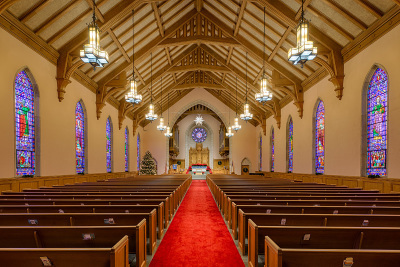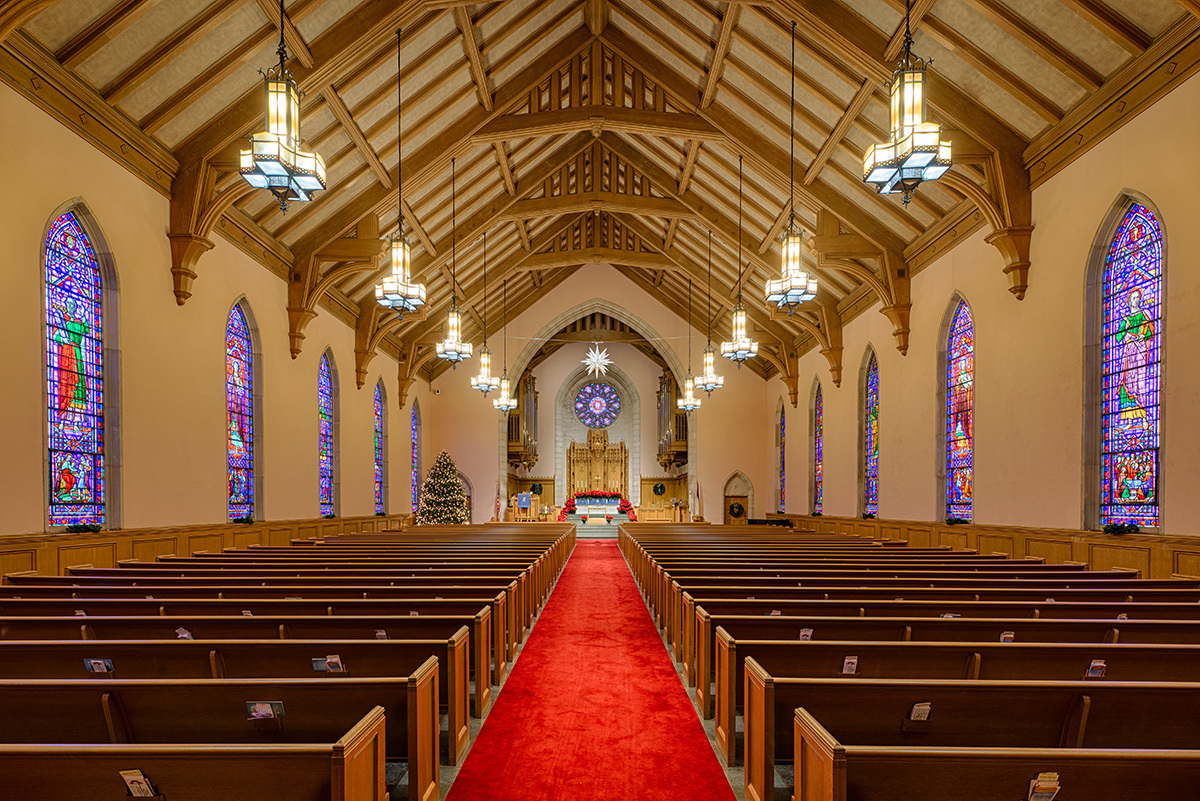
Reports of the financial struggles and decline in membership among large American denominations have become so commonplace that they often elicit little more than a shrug. But every now and then, a report arises that warrants attention.
A recent Religion News Service article gives helpful insight as to why “Protestant denominations are losing members, particularly the Episcopal, Presbyterian, Methodist and other historic mainline groups,” including the Southern Baptist Convention. The inclusion of the SBC is significant because, unlike the other denominations, which “have suffered schisms as they moved in more progressive directions,” the SBC is theologically conservative. Conservative Christians should take note.
The article ironically features a photograph of two queer clergy. If ever one wished to render the church’s message obsolete and her existence pointless, adopting queerness would seem a most excellent way to do it. Queer theory is the perfect tool for demolishing any “oppressive” dogma or claim to transcendent truth. But if the church has no truth to proclaim, why does she exist? Or, more pointedly, why should anyone bother with her? H. Richard Niebuhr aptly summarized the irrelevance of liberal Protestantism: “A God without wrath brought men without sin into a Kingdom without judgment through the ministrations of a Christ without a Cross.” And yet even that seems quite robust compared to queer Jesus and a gospel with no apparent purpose other than decrying traditional Christianity and affirming the fluid identities of autonomous individuals. One reason for the dying of the churches is that God’s truth died in so many of them many years ago. We are merely living at a time when the interest payments have come due.
Cuts to the administrative structure of these denominations look set to be swift and sharp. Yet that hints at another problem in American Christianity: a decades-long creeping prioritization of church agencies over local church ministry. Following the money is a sound way to see who and what an organization deems most important. Overpaid administrative agencies are one good example of this. Now, this is not a monopoly of the liberal mainstream. In the conservative Presbyterian world there are denominations where agency heads earn in excess of $300,000, typically much more than the average congregant or even the most well-paid ministers. Yet it is the ministers who preach each week and do the work of frontline ministry.
Ralph McInerny said that when a sports coach is paid more than the top professors at a university, something is deeply wrong. This principle applies to denominations too. Other denominations — conservative, orthodox denominations — not yet facing quite the same crisis should learn from this. The travails of the SBC indicate that the problem of church decline is not restricted to those who deny the Resurrection or choose their own preferred pronouns for God. Perhaps it has as much to do with priorities as with orthodoxy.
That message seems to be resonating with at least some mainstream leadership who are looking to more grassroots, parish-level organization as part of the solution. And they rightly note a growing anti-institutional dimension of modern American culture. Scott Thumma, co-director of the Hartford Institute for Religion Research, comments that “organized religion” does not appeal to many today but that “you have people who are still interested in spirituality, some sort of gathering around something higher than themselves, but not in these particular forms.”
Herein lies the deepest problem the churches face: the separation of “spirituality” from Christian faith and practice, two things that can only take place when anchored in an ecclesiastical context. In recent years, there have been calls for the re-enchantment of the world, calls that see our contemporary malaises, whether of morality, identity, or meaning in general, as the result of the prosaic world of instrumental reason that shapes so much of our cultural landscape. I sympathize with this to a point: The world is more than atoms, and life is more than a biological process just as surely as the roof of the Sistine Chapel is more than paint splashed onto plaster.
And yet seeing metaphysical depth in this world is not the same as seeing truth in this world. The prophets of Baal lived in an enchanted world, and it did not save them. Mediums and astrologers live in an enchanted world, and yet offer nothing but nonsense to their clientele. If enchantment simply means seeing the world as a more mysterious place, it is useless as an idea. More pointedly, Christianity stands in judgment over and in opposition to all enchantments but its own, and the agency by which that is made a reality is the institutional church. Leaving the Church for unspecific spiritualities is not encouraging. More likely it is just another manifestation of the therapeutic society’s fallacious answer to the human desire for meaning.
The Religion News Service article makes depressing but instructive reading, from its use of the queer pastors’ picture, to its revelations of the financial priorities of churches, to its commentary on anti-institutional spirituality. There are lessons here for all Christians.
Originally published at First Things.
Carl R. Trueman is a professor of biblical and religious studies at Grove City College. He is an esteemed church historian and previously served as the William E. Simon Fellow in Religion and Public Life at Princeton University. Trueman has authored or edited more than a dozen books, including The Rise and Triumpth of the Modern Self, The Creedal Imperative, Luther on the Christian Life, and Histories and Fallacies.








